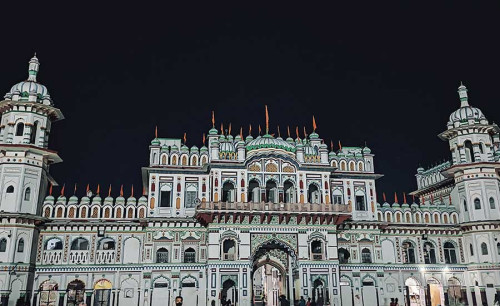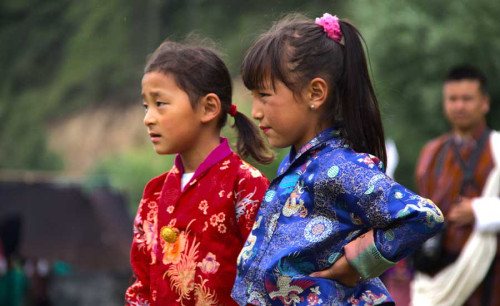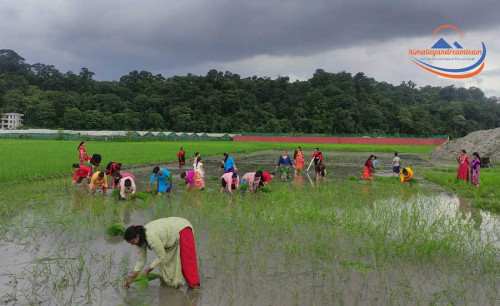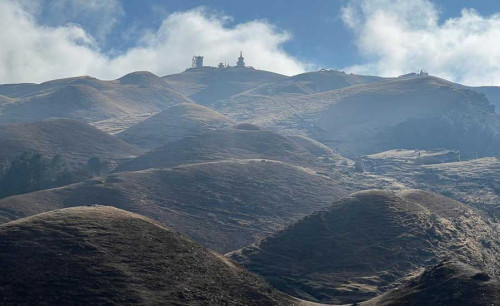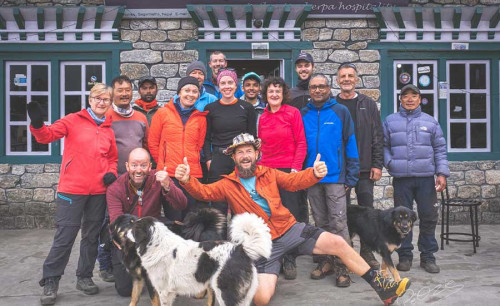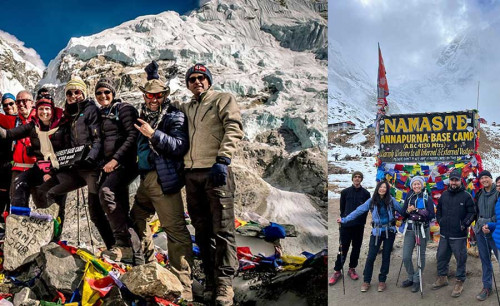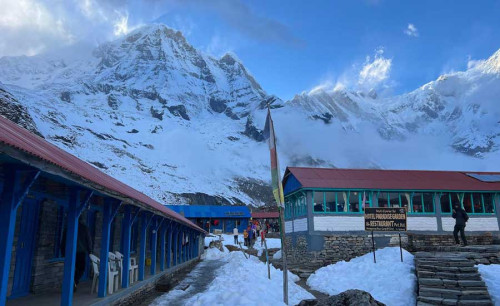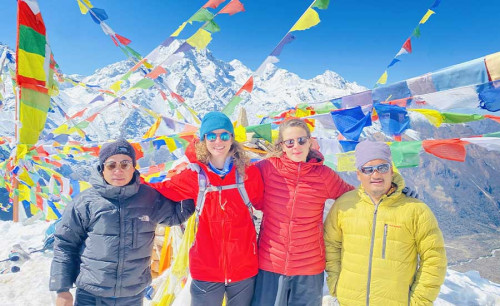Maha Shivaratri 2026: Date & Celebrations in Nepal
Published On : 29th Jan, 2026 By Himalayan Dream Team
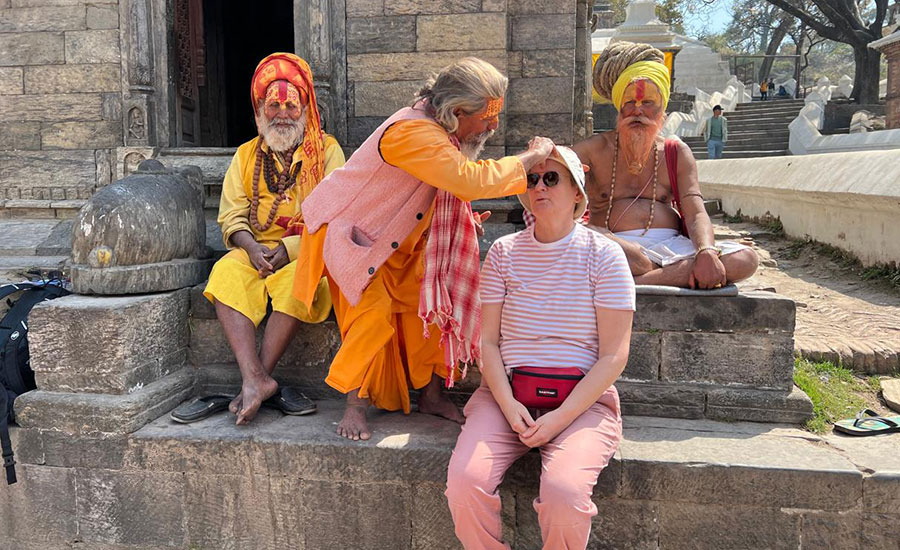
Shivaratri Festival Dates 2026 & 2027
| Year | English Date | Nepali Date (BS) | Day |
|---|---|---|---|
| 2026 | February 15 | Falgun 3, 2082 | Sunday |
| 2027 | March 6 | Falgun 22, 2083 | Saturday |
What Is Maha Shivaratri Celebrated For?
Maha Shivaratri is celebrated to honor Lord Shiva, the supreme deity of destruction and regeneration in Hinduism. The festival symbolizes:
-
The divine union of Lord Shiva and Goddess Parvati
-
The night of cosmic balance and spiritual awakening
-
The opportunity for moksha (liberation) through devotion, discipline, and meditation
Unlike other Hindu festivals marked by feasting and celebration, Maha Shivaratri is observed through fasting, silence, prayer, and self-control.
Why Do We Celebrate Maha Shivaratri?
Devotees celebrate Maha Shivaratri to cleanse negative karma and reconnect with higher consciousness. According to Hindu belief, this is the night when:
-
Lord Shiva performed the Tandava Nritya, the cosmic dance of creation and destruction
-
Shiva became Neelkanth after consuming poison during Samudra Manthan to save the universe
-
Devotion offered with sincerity brings divine grace and spiritual clarity
Why Is the Night Important on Maha Shivaratri?
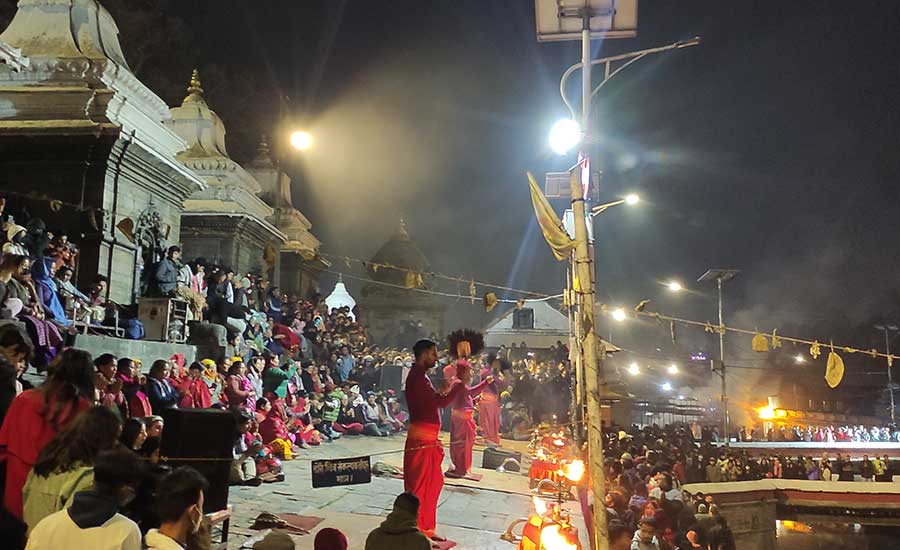
The night represents spiritual darkness turning into awareness. Staying awake (Jagran) signifies:
-
Victory over ignorance and ego
-
Control of senses and desires
-
Heightened spiritual energy
This is why devotees chant mantras and meditate throughout the night.
Why Not Sleep on Maha Shivaratri?
Avoiding sleep symbolizes mindfulness and devotion. Staying awake helps devotees remain focused on prayer and inner reflection, which is believed to amplify spiritual benefits.
What Should You Do on Maha Shivaratri?
On Maha Shivaratri, devotees traditionally:
-
Observe fasting (full or partial)
-
Visit Shiva temples
-
Chant “Om Namah Shivaya”
-
Perform Rudra Abhishek Puja
-
Meditate and practice silence
-
Participate in night-long Jagran
Rules, Do’s and Don’ts of Maha Shivaratri
Rules of Maha Shivaratri
-
Maintain purity of body and mind
-
Avoid alcohol, meat, and negativity
-
Dress modestly and behave respectfully
Do’s
-
Offer bel leaves, milk, water, and flowers
-
Chant Shiva mantras
-
Practice charity and kindness
Don’ts
-
Avoid anger, arguments, and indulgence
-
Do not disrespect temple customs
-
Avoid intoxication (except ritual practices limited to ascetics)
Which Color to Wear on Shivaratri?
Preferred colors include:
-
White – purity and peace
-
Light saffron or beige – renunciation
-
Light green – harmony
Dark and flashy colors are traditionally avoided.
Can We Lie Down or Rest During Shivaratri?
Resting is allowed if necessary, but devotees observing Jagran avoid sleeping through the night to maintain spiritual focus.
Why Do Girls Observe Maha Shivaratri?
Women observe Maha Shivaratri to:
-
Seek spiritual growth
-
Pray for marital harmony
-
Follow cultural and family traditions
Can an Unmarried Girl Worship Lord Shiva?
Yes. Lord Shiva blesses all devotees equally, regardless of marital status.
Why Do Girls Want Husbands Like Shiva?
Shiva represents loyalty, simplicity, spiritual strength, and balance—qualities admired in a life partner.
Why Is Maha Shivaratri Important for Couples?
Couples worship Shiva and Parvati together to strengthen relationships, harmony, and mutual respect.
Is Shiva a Female God?
No. Lord Shiva is male but is also worshipped as Ardhanarishvara, symbolizing the union of masculine and feminine energies.
Difference Between Maha Shivaratri and Shivaratri
| Aspect | Maha Shivaratri | Monthly Shivaratri |
|---|---|---|
| Frequency | Once a year | Every lunar month |
| Importance | Highest | Lesser |
| Spiritual Power | Very High | Moderate |
Maha Shivaratri is the most spiritually powerful Shivaratri of the year.
History of Maha Shivaratri
For centuries, Maha Shivaratri has been observed in Nepal being the home to ancient civilization of Hindus. According to Hindu Mythology, this divine night celebrates the event when Lord Shiva performed the Tandava Nritya- a cosmic dance that affects the five elements, symbolizing creation, preservation, and heavenly destruction. This dance signifies the image of the universe eternal dance which reinforces the nature of divine might and transfiguration.
Maha Shivaratri has been part of Nepal's cultural and spiritual heritage for generations. So, this day is especial in Kathmandu, especially in the surrounding area of Pashupatinath Temple, one of the most sacred shrines of Lord Shiva. Every year, thousands gather at this famous temple for holy processions, special prayers, and divine blessings from above
Cultural Importance of Maha Shivaratri in Nepal
Maha Shivaratri is celebrated as a cultural as well as a spiritual festival in Nepalese Culture as it is celebrated in almost every corner of the country. It is a festival which is deeply spiritual, specifically connected with country’s customs, beliefs, and traditions. In Nepal, Maha Shivaratri is celebrated as the Night of Lord Shiva, who is regarded as the God of destruction and reconstruction. Lord Shiva has a cultural importance in the Nepalese Society. Lord Shiva is not worshipped as a God in Nepalese Society. He is believed to be the God of the Earth. Unity, faith, and the spirituality of the nation reinforces the significance of the festival in the social fabric of the nation.
Maha Shivaratri In Nepal And Its Spiritual Importance
Maha Shivaratri in Nepal is related with the divine connection of Lord Shiva and Goddess Parvati. As per the festivals of Nepal and the spirituality of the Nepalese Society, the ultimate goal of a human being is to achieve spiritual awakening. The Festival is characterized by devotion, heart, and in the Nirvana or Moksha, as it is believed to help people reach Nirvana, Moksha is a total spiritual awakening characterized by the positive energies of the festival. The true devotees of Lord Shiva pay a visit to the Pashupatinath Temple, the holiest Shiva shrine. The Pashupatinath Temple is a UNESCO world heritage site. The devotees visit the temple to chant the mantras and to immerse themselves in the spirituality of the temple.
Religious Rituals
A common activity for devotees during Maha Shivaratri is Rudra Abhishek Puja, which involves the creation of an abiding shiva lingam out of milk, honey, water, and a shiva lingam made of the sacred bel leaves. This ritual abhi shekh puja is performed while reciting the Vedic verses and hymns along with verses from the Shiva Purana. Many devotees stay awake all night in deep meditation while engaging in the rituals. These practices are a symbol of their submission to the Divine Consciousness.
Social and Cultural Integration
Celebrating Maha Shivaratri in Nepal is a unique experience for everyone. It is an excellent means of inter-caste and inter-ethnic integration. Participants in the event, including pilgrims, sadhus, and tourists, are able to freely intermingle on their own. The celebration of Maha Shivaratri in Nepal is a bold demonstration of the country’s living spiritual heritage and the deep integration of its people.
Cultural and Economic Value
Another impact of the Maha Shivaratri celebration is the international followers and spiritual seekers; the celebration plays a significant role in the development of Nepal’s cultural tourism. The flow of people during the celebration of Maha Shivaratri is significant as it positively influences the development of transportation services, hotels, local handicraft sales, and the local economy. The celebration promotes Selfless Giving, which is demonstrated through food offerings and charitable donations.
A Time for Going Within
Amidst the rituals and festivities, Maha Shivaratri is also an occasion for introspection and spiritual renewal. Devotees consider Lord Shiva even more forgiving and blessing those who worship him sincerely and with pure devotion. For the Nepalese, the festival signifies a return to the righteous way of living, self-discipline, and spiritual clarity.
The festival of Maha Shivaratri in Nepal is a remarkable celebration of devotion, culture, and community, making it one of the most significant and deeply impactful celebrations in the spiritual calendar of the Nepalese.
Maha Shivaratri as a Celebration of Unity
Besides being a personal journey of devotion, Maha Shivaratri is a festival that nurtures community bonding. Thousands of devotees, including ascetics or Sadhus and pilgrims alike, come together and pulsate with the vibrant rhythm of faith and spirituality at Pashupatinath Temple.
This festival remembers people of all the importance that is attached with devotion, faith, and unity in Hindu mythology. However, with modernity, nothing changed in the basic traditions and less sacred values it carries, which makes Maha Shivaratri one of the most valued festivals in Nepal. The festival depicts spiritual awakening and communal harmony or devotion, carried with eternal values of Hinduism.
Myths and Legends of Maha Shivaratri Festival
Maha Shivaratri holds deep spiritual significance in Hinduism, with various myths and legends explaining its importance. This sacred festival, observed on the 14th day of the dark fortnight in the month of Falgun, is dedicated to honoring Lord Shiva, the supreme deity of destruction and transformation.
The Legend of the Hunter Suswara
One of the most well-known stories linked to Maha Shivaratri is about a hunter named Suswara, who unknowingly worshipped Lord Shiva while searching for prey in a dense forest. Seeking refuge under a Bilva tree, he unknowingly dropped Bilva leaves onto a Shiva Lingam below. Throughout the night, he chanted Shiva’s name in desperation, unaware that he was performing a sacred ritual. By morning, Lord Shiva blessed him with wisdom, prosperity, and liberation from past sins. This legend signifies the power of devotion and unintentional good deeds leading to divine grace.
The Churning of the Ocean (Samudra Manthan)
Another famous legend associated with Maha Shivaratri is the Samudra Manthan, the churning of the cosmic ocean by gods and demons. During this event, a deadly poison, Halahala, emerged from the depths, threatening to destroy creation. To save the universe, Lord Shiva drank the poison, holding it in his throat, which turned blue, earning him the name Neelkanth (the blue-throated one). Maha Shivaratri symbolizes sacrifice, protection, and the ultimate endurance of Lord Shiva for the well-being of the world.
Devotion at Pashupatinath Temple
Pashupatinath Temple in Kathmandu, one of the holiest shrines dedicated to Lord Shiva, becomes the focal point of Maha Shivaratri celebrations in Nepal. Thousands of devotees, including Sadhus (Hindu ascetics), gather from different regions to seek divine blessings. The temple remains open throughout the night, hosting rituals, prayers, and meditation sessions.
One of the most significant practices during Maha Shivaratri is Jaagran, where devotees stay awake all night, engaging in bhajans (devotional songs), prayers, and meditation. This practice symbolizes spiritual awakening and dedication to Lord Shiva.
The Power of Maha Shivaratri
Maha Shivaratri is more than just a festival; it is a time for purification, devotion, and seeking blessings. Devotees believe that observing fasts, chanting Shiva’s name, and performing sacred rituals on this day help cleanse sins, fulfill wishes, and bring spiritual enlightenment. The festival serves as a reminder of faith, unity, and the eternal power of Lord Shiva, continuing to inspire millions across Nepal and the world.
How Do People Celebrate Maha Shivaratri in Nepal?
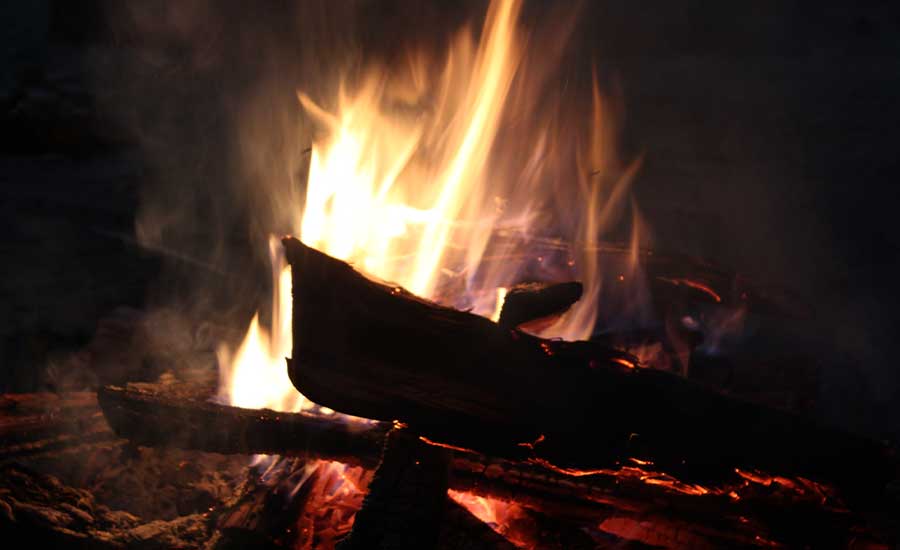
People in Nepal, as well as visitors from abroad, celebrate Maha Shivaratri with great cultural enthusiasm. The festival, in honor of Lord Shiva, encourages the worship of the God of transformation and the God of inner awakening.
Shiva Temple Worship and Maha Shivaratri Puja
Devotees fast on the day and visit Shiva Temple in order to perform special Maha Shivaratri puja. The heart and center of the celebration of Maha Shivaratri is the Pashupatinath Temple, where thousands of devotees offer puja (worship) by giving leaves from the bel tree, flowers, fruits, and diyos (lamps). Milk and water considered holy are also offered to the Shiva Linga. The Pashupatinath Shiva Temple is very active with worship and the offering of prayers and other rituals. It is open all day and all night.
Singing “Om Namah Shivaya” Dharma
One of the major practices of Maha Shivaratri in Nepal is to sing the Maha Mantra, “Om Namah Shivaya,” which to the devotees helps in the purification of their soul, calming of their mind and Divine Blessings from Lord Shiva. The devotees sing the mantra especially during the fast.
Vigil and Bhajans
Jagran, the night of fasting, is the night of worship and many devotees will be staying up to pray and will sing in groups. They will read from the Holy Books, do spiritual discourse, and sing. The celebration represents the dawn of light and the victory over Darkness and Ignorance.
Sandhya Aarti and Sacred Bonfires
The evening Sandhya Aarti is a ritual performed with ghee or oil lamps, and during Maha Shivaratri, it is especially powerful along the Bagmati River in Pashupatinath. Purification and the removal of negative energies are represented by bonfires that some communities choose to burn.
Fasting, Meditation, and Traditional Foods
Some devotees meditate in the evening to attain peace and clarity, and to demonstrate devotion, they fast through the day, and after night vigil, they break the fast with fruits, traditional sweets, and local food, which includes sel roti.
Bhang Consumption (Selective Practice)
In some regions, the consumption of bhang is a cultural option observed in compliance with the law and is viewed as a practice that is a symbolic offering of Lord Shiva.
Maha Shivaratri in Nepal: A Unique Celebration
Celebrations of Maha Shivaratri in Nepal have fully manifested the worship, meditation, and culture, and created a sense of community. For visitors, the festival is a celebration of the devotion Nepal has to Lord Shiva and the Himalayan Hindu customs.
What Makes the Celebration of Maha Shivaratri at Pashupatinath Special?
One of the biggest attractions of Pashupatinath Temple in Nepal is the celebration of Maha Shivaratri. In Nepal, Maha Shivaratri is a festival that is sacred for the Hindus, for Lord Shiva, the Pashupatinath Temple is the heart of the nation and attracts devotees, sadhus, and tourists from various corners of the globe.
1. Enormous Crowds
For the Maha Shivaratri at Pashupatinath Temple, the largest gathering of devotees in the world is an attraction for the Greatest Shiva Temple in Nepal. The temple gets flooded with devotees, and pilgrims from many parts of Nepal, India, and other countries. They engage in offerings, do puja, do the monastery demi-cult, observe fasts, and during the night they do the vigi. The sadhus create a place with glory, from the saffron used in the Temple and the mountains, the rest of the saffron in the temple area.
2. The Sadhus
Ancient Sadhu Babas in their saffron robes, along with the sizzling ash, The Sadhu Babas, are celebrated in the festival. A fifth aspect that draws the attention of devotees and numerous travelers is the mystical and ancient charm they bring to the celebration.
The performance of sacred sadhana in pure devotion to the lord is an aspect of deep-rooted Nepal Shiva culture that makes the celebration of Maha Shivaratri at the Pashupatinath Temple stand out among all other temples in the world.
Why It’s Special
The combination of devotion, sacred rituals, and living spiritual traditions makes Maha Shivaratri at Pashupatinath a unique religious and cultural experience—one that beautifully reflects Nepal’s deep-rooted connection to Lord Shiva.
Best Places to Visit During Maha Shivaratri in Nepal
Best Places to Visit During Maha Shivaratri in Nepal highlights the most sacred destinations to experience this powerful festival, featuring the top temples of Shiva in Nepal where devotees gather for worship, rituals, and spiritual awakening.
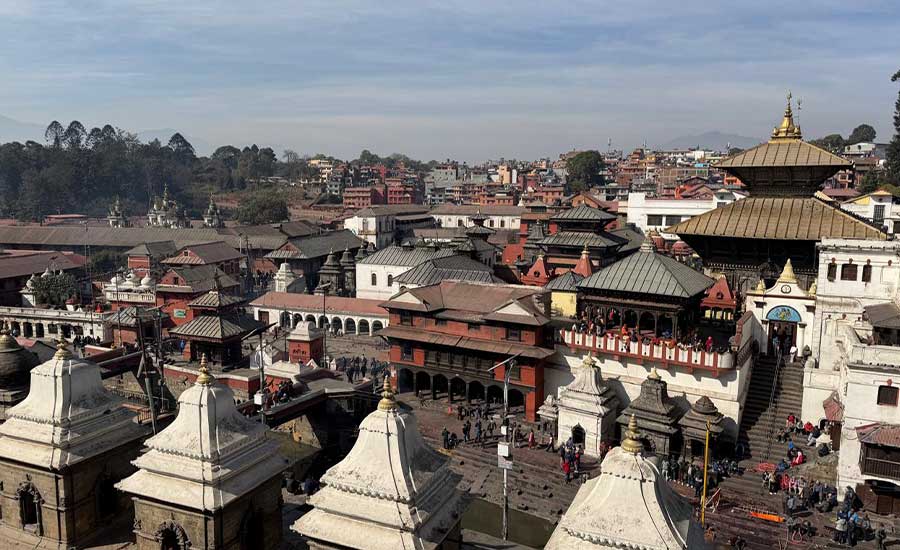
| Place | Location | Why Visit During Maha Shivaratri |
|---|---|---|
| Pashupatinath Temple | Kathmandu (Bagmati River) | Nepal’s most sacred Shiva temple and a UNESCO World Heritage Site—famous for the largest Shivaratri gathering, night vigil (jagran), special pujas, aarti, and the spiritual atmosphere around the ghats. |
| Kailashnath Mahadev Statue | Sanga (Bhaktapur–Kavre border, ~20 km from Kathmandu) | Home to the world’s tallest Shiva statue (144 ft), offering a peaceful place for prayer, panoramic valley views, and a calm devotional experience during Shivaratri. |
| Halesi Mahadev (Maratika Caves) | Khotang (Eastern Nepal) | Known as the “Pashupatinath of the East,” this sacred cave complex is revered for Shiva worship, meditation, and its mystical natural setting. |
| Jaleshwar Mahadev Temple | Jaleshwar, Mahottari (Terai) | Famous as the “Lord of Water” temple where the Shiva shrine is often partially submerged; Shivaratri includes a lively fair, rituals, and large pilgrim crowds. |
| Doleshwar Mahadev Temple | Bhaktapur (near Bhaktapur Durbar Square) | Believed by many devotees to be the head part of Kedarnath; a powerful place to seek Lord Shiva’s blessings during Maha Shivaratri. |
Traveler Tips for Shivaratri Festival in Pashupatinath Temple
-
Arrive early to secure a spot and avoid heavy crowds.
-
Carry water and light snacks, as the temple premises will be crowded.
-
Respect local traditions and customs by dressing modestly.
-
Be mindful of photography restrictions in certain temple areas.
-
Follow security guidelines and stay in a group for a hassle-free experience.
-
Carry cash for temple offerings and small purchases, as digital payments may not be widely accepted.
-
Bring a small mat or cushion to sit on, as you may be waiting for long periods of time.
-
Bring some water and wear comfortable shoes, as you will have to walk for quite some time.
-
Participate in the spiritual environment by chanting or meditating for added experience.
-
Do not carry big bags or valuables, as the temple area is highly crowded.
Maha Shivaratri Festival Dates English
| Year | English Date |
|---|---|
| 2026 | February 15, 2026 (Sunday) |
Shivaratri Festival Dates 2082 in Nepal
| Nepali Date (BS) | Day | Festival |
|---|---|---|
| Falgun 3, 2082 | Sunday | Maha Shivaratri |
Marijuana and Shivaratri: Is Marijuana Legal in Nepal?
Now, regarding marijuana and Shivaratri, it is attached to the belief that marijuana is one of the favorite substances of Lord Shiva. Many ascetics-Sadhus-and devotees consume it as a form of devotion; according to them, this is one way of offering marijuana to Lord Shiva.
At the Pashupatinath Temple, the number of Sadhus is significantly high on Maha Shivaratri, and some of them are visibly smoking marijuana. Because of its spiritual significance on this day, the Nepalese government extends some leniency toward marijuana consumption by these holy men.
Yet, one mustn't forget that marijuana is illegal in Nepal. While the authorities tolerate its limited use by Sadhus during the festival, the possession, sale, or consumption of marijuana outside of Shivaratri is considered a criminal offense. Tourists and visitors should beware; legal consequences do apply to those found in possession or consuming marijuana in Nepal beyond these spiritual exceptions.
Thus, while Maha Shivaratri provides some kind of an exception for religious figures, tourists should respect local laws and avoid using illegal drugs since the law is strictly applied outside the festival.
Frequently Asked Questions
1. What is Maha Shivaratri Festival and why is it important?
Maha Shivaratri is a Hindu festival dedicated to Lord Shiva, observed with fasting, prayers, and night vigils. It symbolizes the triumph of spiritual awakening and devotion.
2. When is Maha Shivaratri Festival celebrated in Nepal?
Maha Shivaratri falls on the 14th night of the dark lunar fortnight of Falgun (February-March), following the Hindu lunar calendar.
3. Where is the best place to celebrate Maha Shivaratri Festival in Nepal?
Pashupatinath Temple in Kathmandu is the most significant site for celebrating Maha Shivaratri, attracting thousands of devotees and sadhus.
4. What are the rituals performed during Maha Shivaratri Festival?
Devotees fast, offer prayers, chant mantras, perform Rudra Abhishek Puja, and stay awake all night in meditation and devotion to Lord Shiva.
5. How is Maha Shivaratri Festival celebrated at Pashupatinath Temple?
The temple hosts special pujas, evening aarti, night-long prayers, and gatherings of Sadhus (ascetics) engaging in spiritual activities.
6. What should I bring when attending Maha Shivaratri Festival in Nepal?
Bring comfortable clothing, water, light snacks, cash for offerings, and a small mat or cushion for long hours of prayer and meditation.
7. Is there an entry fee for Pashupatinath Temple during Maha Shivaratri Festival?
Yes, an entry fee applies for foreigners, but Nepali citizens can enter for free. The fee helps in maintaining the temple and managing the festival.
8. How crowded does Pashupatinath Temple get during Maha Shivaratri Festival?
Pashupatinath sees thousands of devotees, creating long queues. Arriving early in the morning is advised to avoid extreme congestion.
9. What are the spiritual benefits of observing Maha Shivaratri Festival?
Fasting and prayers during Maha Shivaratri help devotees purify their souls, seek forgiveness, and attain divine blessings for a prosperous life.
10. Is photography allowed inside Pashupatinath Temple during Maha Shivaratri Festival?
Photography is restricted in certain areas of the temple. Always seek permission and respect local customs when capturing the spiritual ambiance.
Best Trekking Options to Do Maha Shivaratri Festival in Nepal
Annapurna Base Camp Trek
The Annapurna Base Camp Trek is one of the most popular trekking routes during the Maha Shivaratri Festival. The weather is ideal, offering clear views of the stunning Annapurna range, with crisp, pleasant temperatures. As trekkers pass through quaint villages, they can witness the local communities celebrating, making it a culturally enriching experience. The trek offers a mix of lush forests, terraced farmlands, and breathtaking mountain vistas, creating a perfect balance between adventure and cultural immersion.
 Everest Base Camp Trek
Everest Base Camp Trek
The Everest Base Camp Trek is an iconic trekking route that many choose during the Maha Shivaratri Festival. The skies are usually clear, providing unbeatable views of Mount Everest and other Himalayan giants.
 Langtang Valley Trek
Langtang Valley Trek
The Langtang Valley Trek is another fantastic option during Maha Shivaratri Festival, offering relatively fewer crowds compared to the more famous routes. clear weather enhances the beauty of the Langtang range, and trekkers can enjoy the serene atmosphere as they pass through traditional Tamang and Sherpa villages.
 Ghorepani Poon Hill Trek
Ghorepani Poon Hill Trek
The Ghorepani Poon Hill Trek is a short and scenic trek, making it a perfect choice for those wanting a quick but enriching experience during Maha Shivaratri Festival. The highlight of the trek is the sunrise view from Poon Hill, which offers panoramic views of the Annapurna and Dhaulagiri ranges.
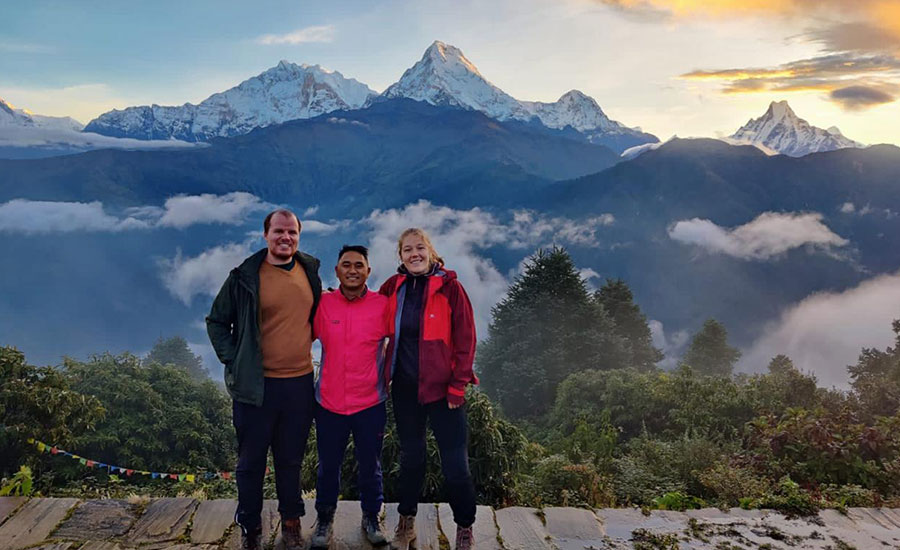
Mardi Himal Trek
The Mardi Himal Trek is a lesser-known gem that is gaining popularity among trekkers. The trek offers stunning views of Machapuchare (Fishtail) and the Annapurna range. The moderate difficulty level and the cultural interaction during Festival make this trek an excellent option for adventurers.
Manaslu Circuit Trek
For those seeking a less-traveled path during Maha Shivaratri Festival, the Manaslu Circuit Trek is an excellent choice. This trek offers remote wilderness, stunning views of Mount Manaslu, and encounters with diverse cultures, including Gurung and Tibetan communities.

Upper Mustang Trek
The Upper Mustang Trek offers a unique experience during Maha Shivaratri as it takes trekkers through the semi-arid desert-like landscapes and ancient Tibetan Buddhist culture of the Mustang region. With clear skies, mesmerizing landscapes, and a rich cultural experience, this trek is perfect for those looking for something different during the festival season.

Recent Posts
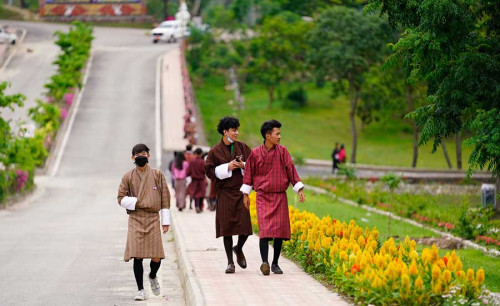
18th Jan, 2026
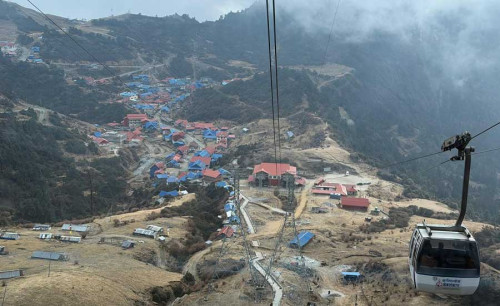
11th Jan, 2026
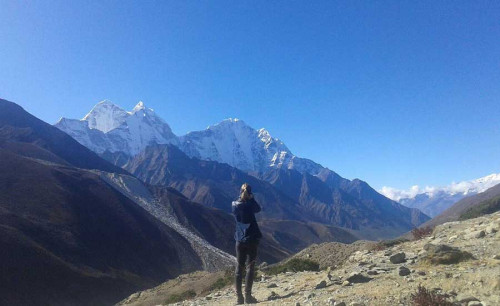
28th Dec, 2025
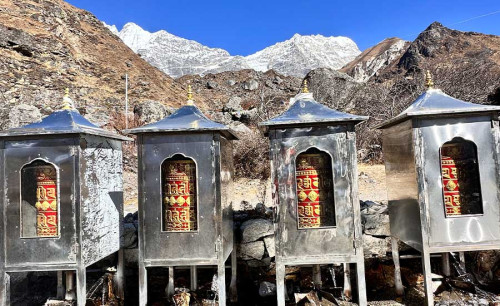
2nd Dec, 2025
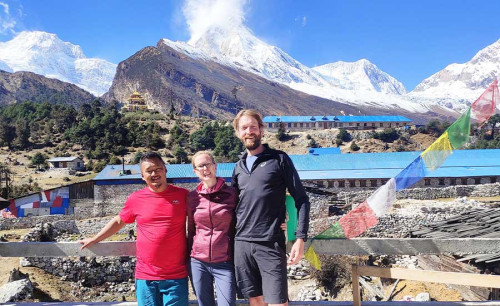
24th Nov, 2025
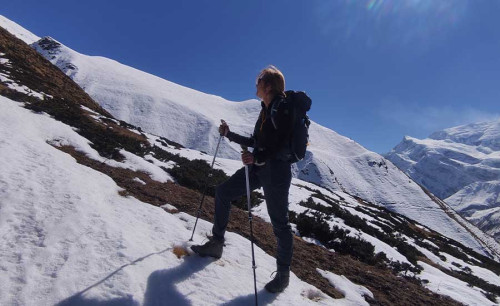
21st Nov, 2025


